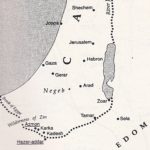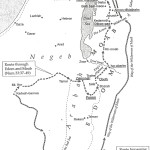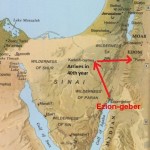
“You shall make accessible to yourselves towns which will serve you as towns of asylum where a manslayer may flee, one who kills a human being inadvertently. These towns shall serve you as places of asylum from an avenger so the manslayer will not die until he stands before the congregation for judgment.” (Num 35:11-12) There are a number of traditions in the Torah that speak of a manslayer (that isRead More


